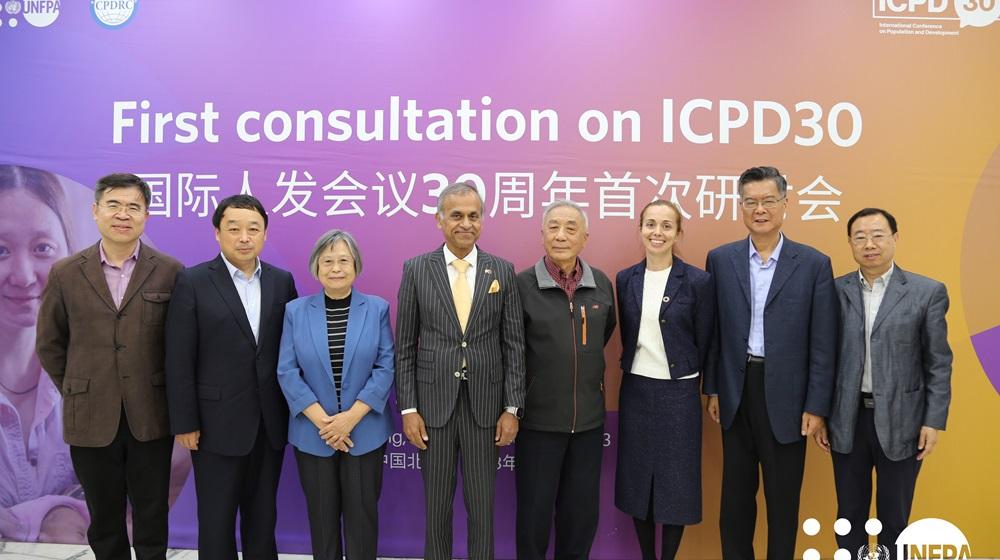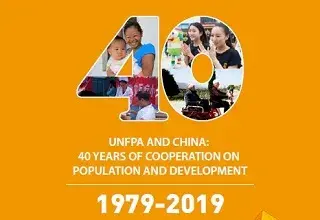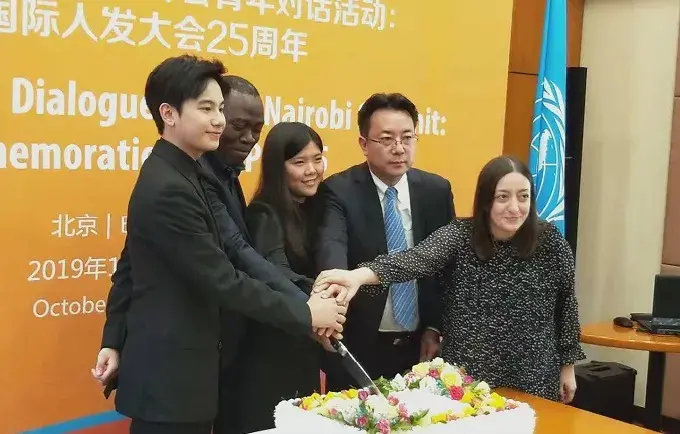To celebrate the 30th anniversary of the International Conference on Population and Development (ICPD), the United Nations Population Fund (UNFPA) China and the China Population and Development Research Center (CPDRC) jointly hosted the first ICPD30 consultation in Beijing on November 3rd 2023. The event was attended by the China delegation to attend the forthcoming 7th Asian and Pacific Population Conference to be held in Bangkok from 15-17 November 2023, as well as national researchers from various fields such as population and development, sexual and reproductive health, gender equality and women's empowerment, youth empowerment and development, along with representatives from UNFPA and other international organizations.
Mr. Siddharth Chatterjee, the UN Resident Coordinator in China and Mr. Zhang Xuying, Deputy Director of the CPDRC delivered remarks. Mr. Siddharth Chatterjee emphasized the positive and profound impact of the ICPD principles on China's development and expressed the importance of empowering women and promoting reproductive health in addressing evolving population dynamics. Mr. Zhang Xuying reviewed the history and experience of China's collaboration with the UNFPA in implementing the ICPD Programme of Actions (PoAs) over the years, and reiterated the relevance of ICPD principles in current China.
The first part of the consultation focused on the history of ICPD and China's practices and experiences. The second part mainly discussed China's achievements and future challenges and opportunities in the areas of sexual and reproductive health (SRH), sustainable development and regional cooperation. Experts and scholars from CPDRC, including Mrs. Liu Hongyan, Ms. Wang Hui, Mr. Wang Yingan and Ms.Tang Mengjun. Prof. Chen Wei from the Population and Development Research Center of the Renmin University of China, Ms. Jiang Xiuhua from the All-China Women's Federation's Women's Research Institute, Mr. Liang Xiao from the China Family Planning Association (CFPA), and Prof. Feng Qiushi from the National University of Singapore (NUS), delivered thematic presentations and shared their insights.
Several experts and scholars mentioned that China has actively implemented the ICPD PoAs over the past 30 years, achieving commendable results with valuable experience. However, nowadays, China's population development is undergoing new changes, with trends of population ageing, low fertility, and negative population growth. These new developments are prompting all parties to further consider how to better adhere to the ICPD principles in this changing national context.
The meeting included a special discussion and commentary session, where several of the China 1994 ICPD participants, delivered valuable reflections. Professor Gu Baochang from Fudan University's Institute of Population and Development Research suggested that participants should understand the positions and viewpoints of various countries on different topics to actively engage in international discussions. He emphasized that China needs to actively participate in international cooperation, closely follow and discuss global issues, and be well-prepared for the country's future development.
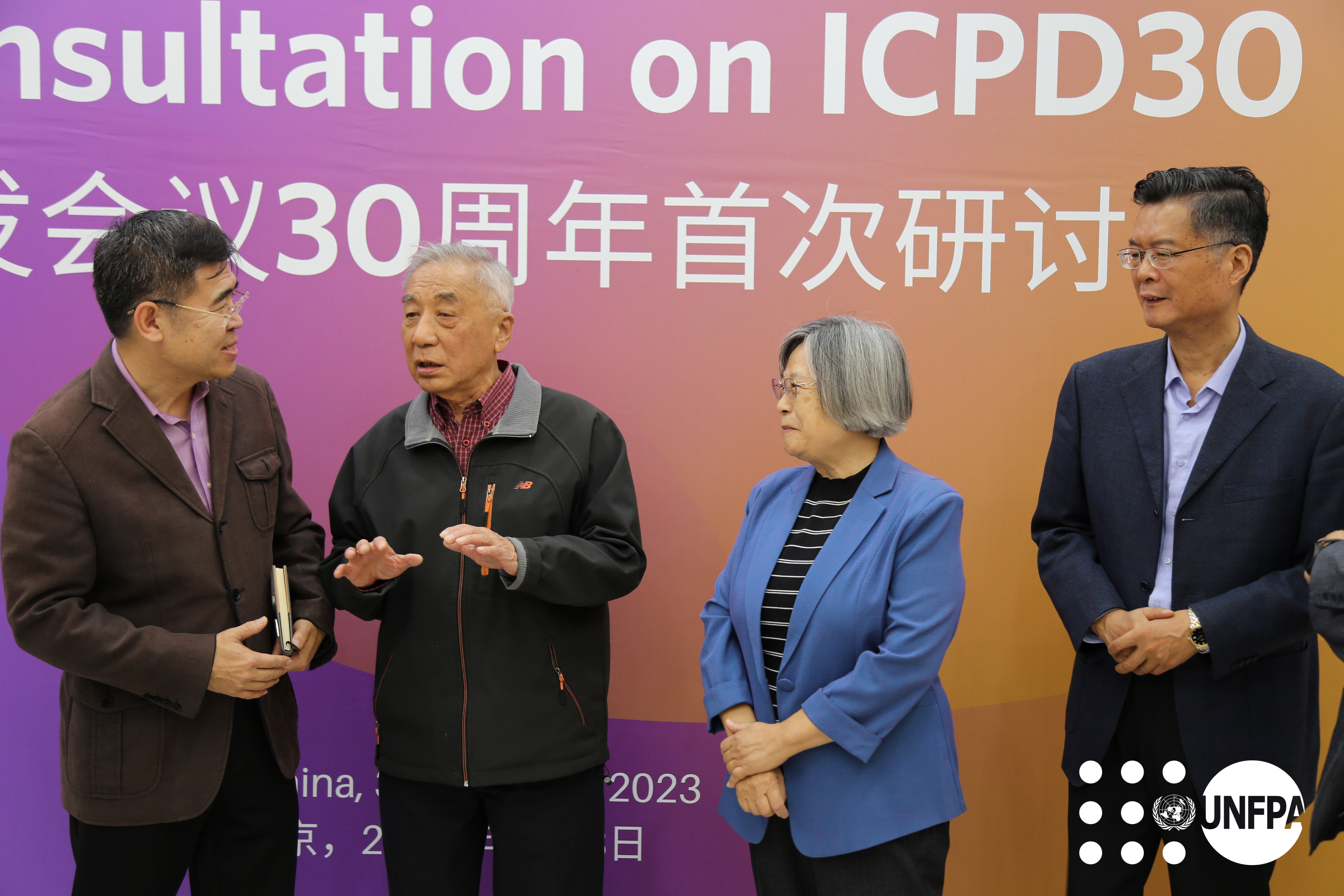
Professor Zheng Zhenzhen from the Institute of Population and Labor Economics of the Chinese Academy of Social Sciences affirmed the significant progress China has made in practicing the ICPD principles and in implementing and promoting national population policies. She also mentioned that achieving genuine gender equality in China requires a deeper transformation of people’s fundamental beliefs.
Hu Hongtao, Ex-Director-General of the Department of International Cooperation of National Health Commission (NHC) and Senior Advisor with the Partners in Population and Development (PPD), emphasized in his sharing, "China has made significant contributions and achieved great accomplishments under the ICPD PoAs in the past. However, in the process of redefining the PoAs for the next 20 years after 2030, we need to consider China's position and what the Chinese solution could be."
Hong Ping, Deputy Secretary General of China Family Planning Association, commented that the conference should, on the basis of summarizing experiences, also address the common challenges that the world will face in the future. By raising questions, pooling resources, and promoting international exchanges, we can truly build a community of shared human destiny and establish strong partnerships, ensuring that "no one is left behind."
Ms. Zhang Bingzi, a research fellow from the Development Research Center of the State Council also shared her insights. Addressing specific issues in various fields means paying specific attention to the situations of different groups in different contexts, which is the original intention of the ICPD “person-centred” development concept.
In his concluding remarks, Mr. Yang Jinrui, Deputy Director-General of the Department of Population Surveillance and Family Development of the National Health Commission of China reviewed China's significant achievements over the past 30 years under the framework of ICPD while also highlighting the new challenges in China's population development under the current circumstances. He expressed his best wishes for the upcoming 7th Asia-Pacific Population Conference in Bangkok and called upon UNFPA and all experts and scholars to continue to pay attention to and support China's population and development.
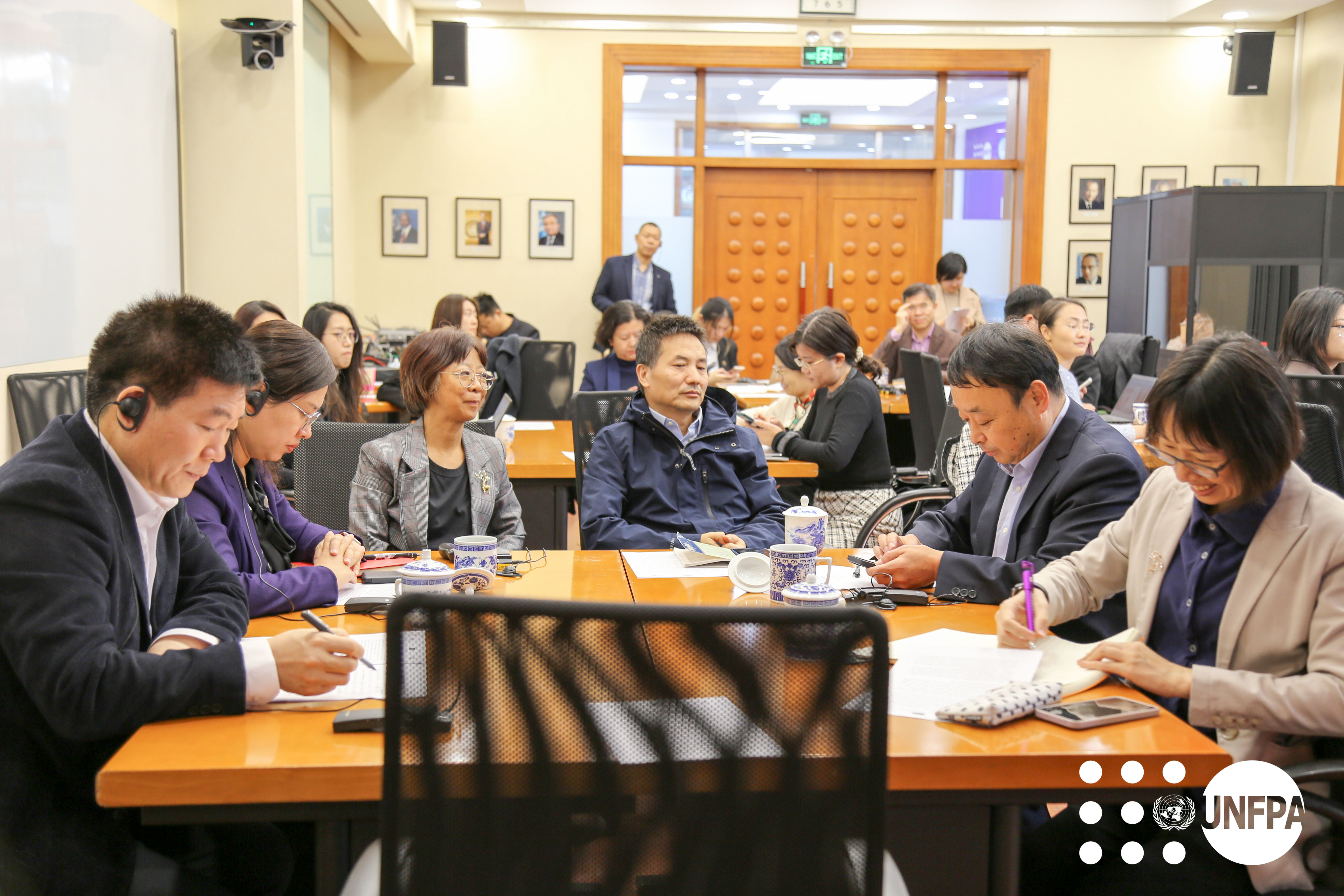
International Conference on Population and Development (ICPD)
The 1994 International Conference on Population and Development in Cairo, Egypt, was a milestone event in the global population and development field, affirming core principles of a people-centered approach, reproductive health, and gender equality. This consultation looked back on the positive impact of the ICPD on various aspects of China's population and development, including SRH, gender equality, and women's health over the past 30 years. Furthermore, it provided sound recommendations on how to better implement the ICPD PoAs in China's evolving demographic context. These recommendations will serve as valuable guidance for the Chinese delegation attending the 7th Asian and Pacific Population Conference from November 15 to 17 in Bangkok, Thailand.

